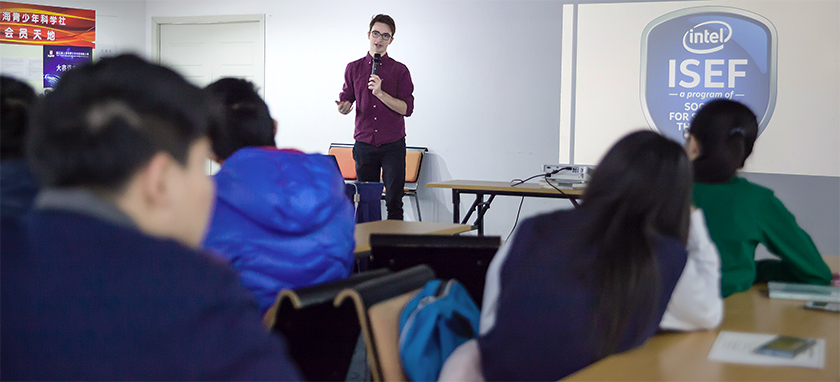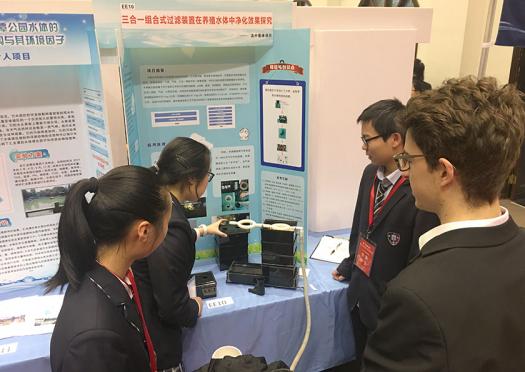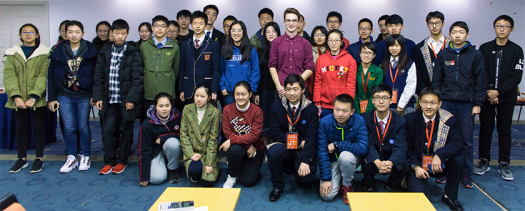‘Countries have political borders — science doesn’t’

It’s not every day that a high school student is invited to China to deliver a keynote address on their scientific research. But that’s exactly what Tassilo Schwarz (Intel ISEF 2017), a German high school student, was asked to do in Shanghai this winter. He spoke to winners at the 33rd Shanghai Adolescents Science and Technology Innovation Contest, Shanghai’s biggest science contest.
“I felt very honored to be invited to China and to be given the opportunity to inspire motivated young students into STEM,” Tassilo said.
In his speech, Tassilo gave an overview of Intel ISEF and described his project, which focused on a drone defense system, including the detection, tracking classification, and targeting of flight objects in 3D and real-time.

He also talked to the high school students about smart cities, urban areas that use electronic data collection to supply information for things like managing resources. A smart city can be seen as an evolution of a digital city, Tassilo said.
“Smart cities is a visionary approach that tries to adapt cities to future challenges and increase their capacities by combining digitalization and urban challenges,” Tassilo explained. “Especially in China, where more and more people live in megacities, and the government is investing in digital solutions, this topic is very relevant.”
“The idea of smart cities also raises questions, like how can we prevent digital cities from being hacked and who does the arising collected data belong to?” he said. “Especially the latter question is extremely important, given the fact that governments are already testing social credit systems.”
Countries have political borders — science doesn’t.
Tassilo won several awards at Intel ISEF 2017, including the Intel Foundation Cultural and Scientific Visit to China. This award provided Tassilo and several other Intel ISEF 2017 finalists with the opportunity to travel to Beijing, Chengdu, and Hong Kong for an 11-day trip that included attending the China Adolescent Science and Technology Innovation Contest, the largest national science competition in China.

“Countries have political borders — science doesn’t,” Tassilo said. “That’s why exchange in science beyond political borders is so fundamental. We all speak the same scientific language, and our ultimate goal should be to propel our society forward.”
There are different regional emphases in research, Tassilo explained. He therefore believes sharing science among countries and communities enriches the global scientific view. “By combining different approaches, 21st century challenges can be solved,” he said.


